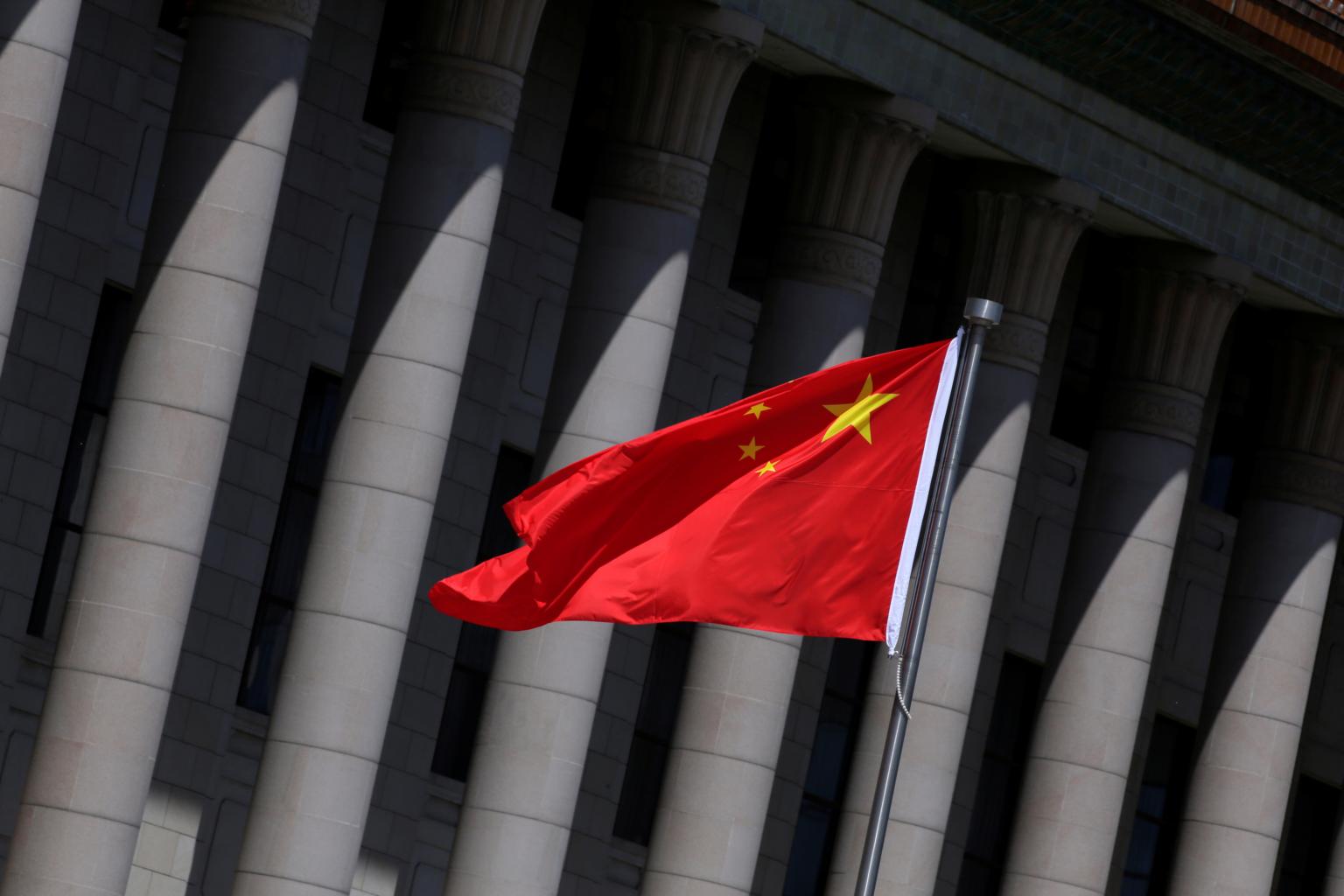China's leaders head to Beidaihe summer resort to ponder slowing economy, trade war
Sign up now: Get insights on Asia's fast-moving developments

The Beidaihe meeting comes amid doubts about China's ability to forge a lasting truce with US President Donald Trump.
PHOTO: REUTERS
Follow topic:
BEIJING (BLOOMBERG) - The signs of summer have arrived in the northern Chinese resort town of Beidaihe: The umbrellas are out, the traffic controls are in place and the regional Communist Party chief has stopped by to make sure everything's set for the most important of visitors.
China's so-called summer capital on the Yellow Sea, more than 200 km from Beijing, plays host to a yearly conclave of party luminaries including President Xi Jinping, his top aides and retired leaders. While the meeting's agenda, guest list and exact dates are shrouded in secrecy, there are indications that events are already underway, such as the traffic restrictions that took effect Saturday and last until Aug. 18.
This year's gathering, which likely won't be joined by Mr Xi and other sitting state leaders until early next month, may bear even closer watching than usual as China faces growing risks at home and abroad. Beidaihe's mid-August conclusion has in the past heralded policy moves, with leaders this year likely to discuss the slowing economy, the simmering US trade war and plans to mark seven decades of party rule over the People's Republic of China.
Said Mr Minxin Pei, author of the 2016 book "China's Crony Capitalism: The Dynamics of Regime Decay" and a professor of government at Claremont McKenna College in California: "The unrest in Hong Kong, the trade talks with the US, and the celebrations marking the 70th anniversary of the PRC will likely dominate the discussions in Beidaihe this year.
"On a specific issue such as the trade talks, Beidaihe could have a decisive impact."
The Beidaihe meeting comes amid doubts about China's ability to forge a lasting truce with US President Donald Trump, who continues to raise the prospect of expanded tariffs on Chinese goods even after agreeing with Mr Xi last month to resume trade talks. The world's second-largest economy had the weakest quarterly growth since at least 1992 and a record 8.3 million graduates are entering a softer job market.
Moreover, weeks of protests in Hong Kong over an attempt to allow the transfer of criminal suspects to the mainland have left the local legislature ransacked and exposed widespread criticism of the city's leadership.
Taiwan's China-skeptic president, Tsai Ing-wen, has resuscitated her hopes of winning a second term by seizing on the Hong Kong anxiety and running against Beijing.
The Beidaihe tradition dates to the earliest days of Mao Zedong's reign, when party patriarchs used to swim in the sea with their bodyguards. For instance, the decisions that led to Mao's Great Leap Forward - an aggressive push to develop industrial power that resulted in widespread famine - were made there in 1958.
The event has endured as an opportunity for sitting leaders to build consensus ahead of more formal annual party meetings held in the autumn back in the marble halls of Beijing. State media reports show attendees discussed the party leadership lineup in the resort area in 1997, and economic development after hosting the Olympic Games in 2008.
The nation's top leaders usually fall out of public view during their own meetings in Beidaihe, adding to the mystery around the event. Since coming to power in 2012, Mr Xi has largely disappeared from the front page of the party's flagship People's Daily newspaper for a 15-day window stretching from July 31 at the earliest to Aug. 17 at the latest.
There are exceptions for natural disasters and other major events, such as when Mr Xi was featured on the front page of the People's Daily on Aug. 12, 2017, in an article about his phone call with Mr Trump. Still, the need for top policy officials to be near the leaders in Beidaihe creates a two-week block of time when scheduling high-level meetings, such as planned U.S.-China trade talks, is more difficult.
More recently, the party has announced several critical decisions in the weeks after Beidaihe meetings, including the move to prosecute former Politburo member Bo Xilai in 2012 and Mr Xi's sweeping restructuring of the People's Liberation Army in 2015. Events have also included more academic discussions, such as a gathering last year of 62 scientists from fields including semiconductors, aerospace, railways and poverty alleviation.
Security is paramount during such sensitive discussions and local party leaders institute traffic controls and conduct inspection tours. Mr Wang Dongfeng, party secretary of the surrounding Hebei province, paid a personal visit to Beidaihe ahead of the "tourist season" on July 7 and 8, according to a local newspaper report that made no mention of the leadership gathering.
Mr Xi's consolidation of party power, including writing his status as China's "core" leader into the constitution last year, has raised questions about the need for the summer meetings.
The Liaowang Institute, a think tank affiliated with the official Xinhua News Agency, wrote in 2015 that Beidaihe was "gradually losing its political colour and returning to its original role as a health resort in the northern China."
Still, it may provide a useful forum to manage intra-party debate, such the unusually public discussion last year over whether Mr Xi's decision to shift from former leader Deng Xiaoping's "hide your strength, bide your time" foreign policy had prompted a premature showdown with the US.
On Aug. 9, People's Daily confronted critics in an editorial, saying "such a heavyweight cannot be hidden by taking a 'low key' approach, just like an elephant cannot conceal its body behind a small tree."
"Last year's gathering at Beidaihe appeared to have strengthened Xi politically," said Mr Pei of Claremont College.
"I would say it is even more important these days because a strongman leader such as Xi actually needs to cultivate and build support among his senior colleagues whenever he can."

